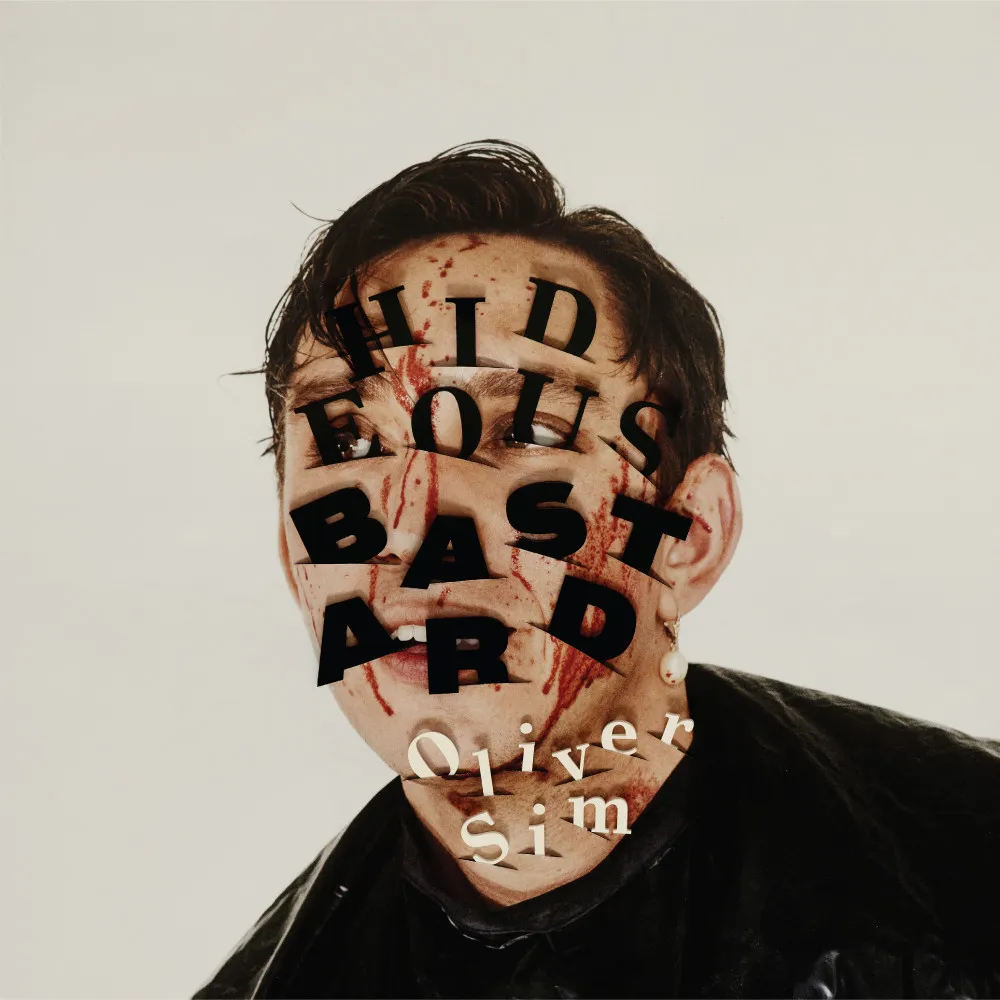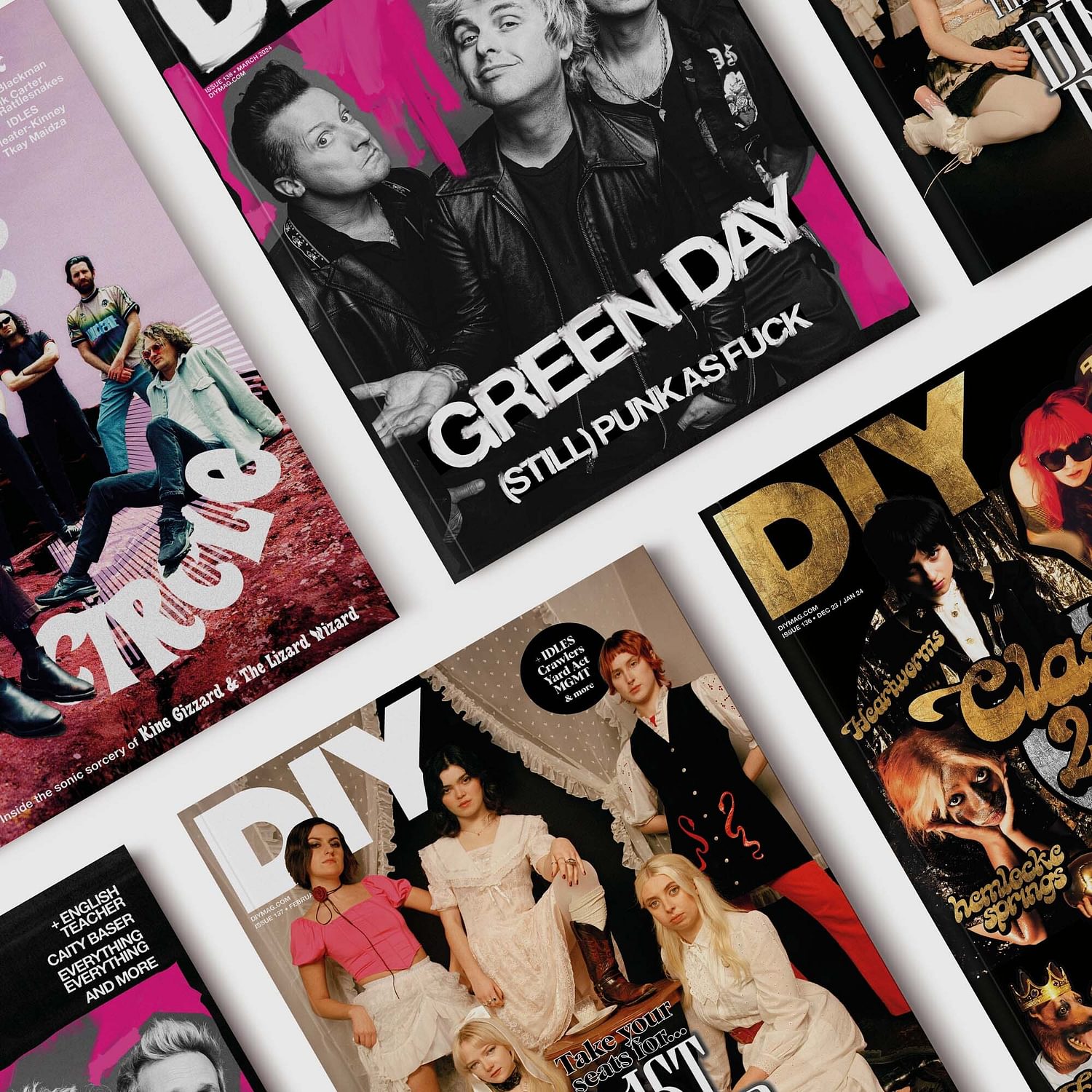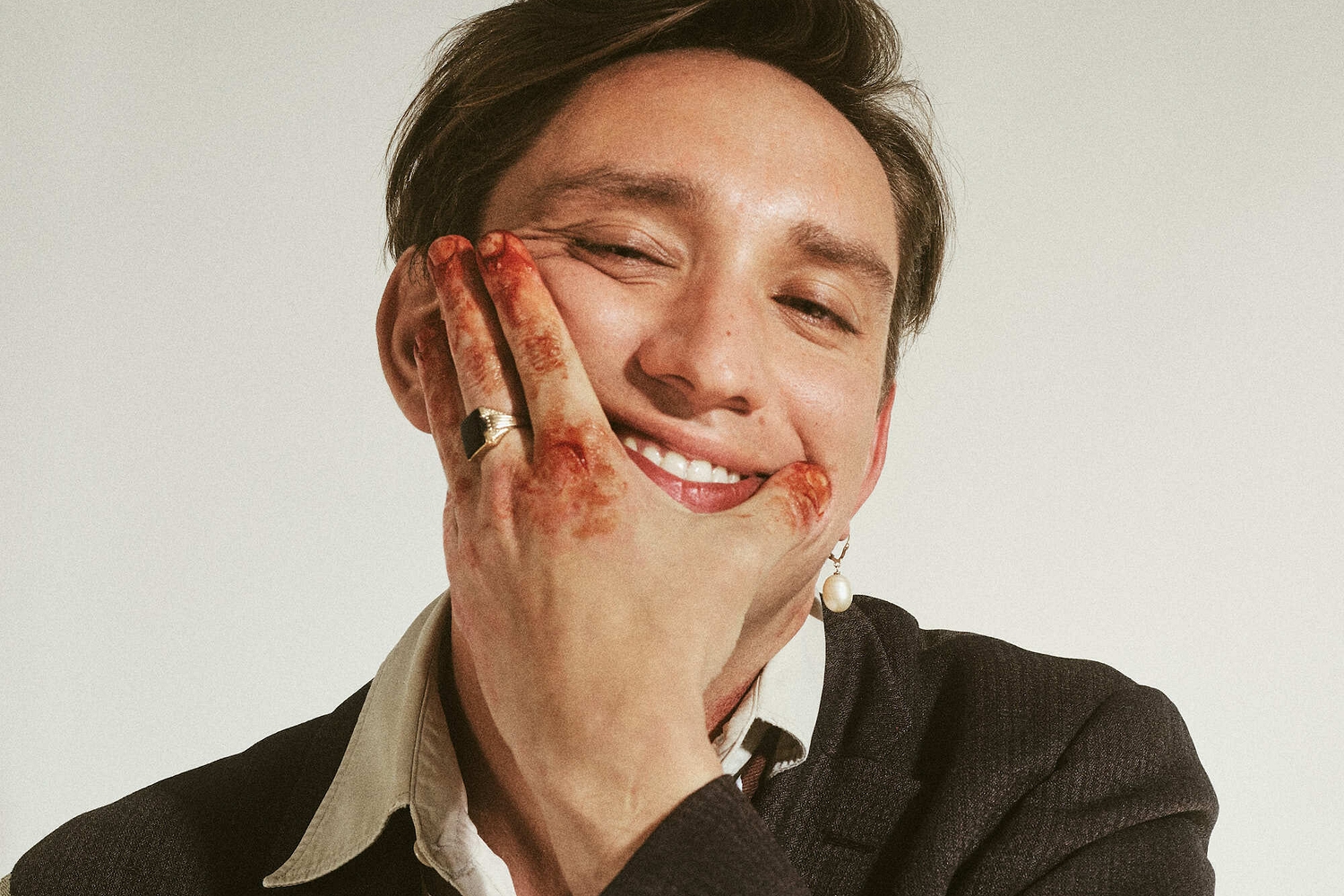
Interview Seeking Beauty: Oliver Sim
This month’s solo debut “Hideous Bastard’ finds The xx’s Oliver Sim opening up and letting the world in on his most personal truths.
“Even in an era when artists are encouraged to be as raw and authentic as possible, few would name an album “Hideous Bastard’. But Oliver Sim, one third of era-defining indie band The xx, doubles down on the idea with artwork that shows his bloodied, sliced-up face covered in letters spelling it out: H-I-D-E-O-U-S B-A-S-T-A-R-D.
“You know, a lot of this album is about sharing the stuff that has made me feel ugly or hideous,” Oliver says when we meet at his record label’s East London offices. “But I also wanted it to have a sense of humour, which not everyone has necessarily understood. “Hideous Bastard’ is hilarious to me as well. It’s quite, like, British.”
It sounds, DIY suggests, like something Peggy Mitchell from EastEnders might have screamed at her feckless husband. “I mean, exactly,” Oliver replies with a smile. “A good friend of mine, Rose, calls me it regularly. And it has that English thing of, if you’re gonna talk about yourself at great length, make it self-deprecating.”
Oliver has been writing and singing beguilingly emotional songs with The xx for well over a decade, but “Hideous Bastard’ - a luminously beautiful collection of bruised confessionals - is his first solo album. Don’t worry about the group’s future, though: after this interview, he’s off to celebrate bandmate Romy Madley-Croft’s birthday. The trio’s third member, Jamie xx, produced “Hideous Bastard’ in its entirety. “I’m very fortunate that one of my best friends is, in my opinion, one of the best producers around,” Oliver says matter-of-factly. “If I had made the album with somebody else, I don’t think I could have been this vulnerable.”
And on his debut, he lays himself bare to the extreme. “Been living with HIV since 17, am I hideous?” he sings starkly on opening song “Hideous’, a stunning ballad featuring guest vocals from Jimmy Somerville, legendary frontman of “80s synth-pop bands Bronski Beat and The Communards.
When “Hideous’ was released as a single in May, it marked the first time that Oliver, 32, had publicly shared his HIV-positive status. “My initial decision to do that was so impulsive,” he says today. “It was like, “I’m just gonna throw this into the world and be done’, because it’s way easier for me to be honest in songwriting than it is in person, in a conversation.”
Oliver says that though those closest to him already knew about his status, he tended to “put an invisible force field around it”; he’d tell someone he was HIV-positive, then never discuss it with them again. So when he played “Hideous’ to his mum, she gave him some very sensible advice: “How about you start having some conversations before you put the song out?”
The musician listened to his mother and began broaching the topic properly with his nearest and dearest. “It was super uncomfortable,” he says, “but I kept at it and started working my way out from my inner circle. My mind wave was like, I knew exactly who knew, I knew if they told anyone else, and that’s my way of navigating this. It was about control, but I had no control.”
A watershed moment came when he started shooting Hideous, an “avant-garde three-part musical” accompanying the album made with visionary French director Yann Gonzalez. In it, he plays three characters - The Artist, The Phantom and The Monster - for a 20-minute short that cleverly blends horror elements with a touching coming-out narrative. He explains that he was thrilled to make Hideous because he’s loved horror since he was a kid - “It scared and excited me, but it could also be camp with amazing female characters” - but it meant playing “Hideous’ to an entire cast and crew.
“They could have gone home and told anyone [about the “living with HIV” lyric],” he continues. “So by the time the song came out, it didn’t feel like such a closely-guarded secret.” Though Oliver says he finds it harder to be honest in person, he’s far too smart and sincere to frame “Hideous’ dropping as some kind of euphoric liberation. “It didn’t feel as drastic [as that] and it was still uncomfortable in moments,” he says. “But I did realise that I was doing something that I wouldn’t have been able to do three years ago.”
“Hideous Bastard’ also features a song called “Sensitive Child’ and another called “Confident Man’, but don’t go expecting some kind of corny “journey” from the singer. “This album has so many questions - Why do I feel afraid? Why do I feel shame? Why do I feel less than? - and so few answers,” he says. “I think the only resolve I have to some of these questions is the fact that I’m releasing this music: I’m here and I’m putting myself out there.”
He isn’t exaggerating. On “Fruit’, a swelling electronic ballad that also features Somerville, he sings heartbreakingly about the decades of shame he’s felt for being gay. “Far too femme,” he sings on the first verse. “You can dress it away, talk it away - go down the flame, but it’s all pretend.”
Today, Oliver says he was aware of this shame before he even had a name for it. “As a kid, I remember there were times where I quite enjoyed being a little more femme and feeling, like, totally at ease with that,” he recalls. “But then I slowly learned that this wasn’t OK. I do remember this marker point when there started to become a divide between what I could be at home and what I could be at school.” As he acknowledges in the Hideous film with a pithy euphemism, he was never “part of the football crowd”.
He admits he felt lonely and isolated during the first Covid lockdown, which compelled him to reach out to queer artists who had always inspired him: Gonzalez, John Grant, Elton John. “He’s very much what he puts out into the world,” Oliver says of the latter. “He’s very potty-mouthed, very loving, and super-interested in new music.”
He also messaged Somerville, whose glorious voice had soundtracked Oliver’s childhood in South West London. “There are videos of Jimmy on YouTube from the “80s where he’s appearing on morning TV and consistently saying “HIV’, “AIDS’, “gay gay gay’ to all these families eating their breakfasts,” he says, still sounding impressed. “He seems quite combative, and I was like, I need some of that!”
He forged a friendship with Somerville before floating the idea of working together. “Getting to know Jimmy made me realise that he’s not fearless,” he says. “Like, he’s an anxious Manic Mary, he’s full of fear, which makes everything he’s done so much more cool and meaningful and human.” It’s no coincidence that Somerville, with his face covered in glitter, portrays Oliver’s guardian angel in the Hideous film. The short also features a cameo from another queer icon, recent DIY cover star Bimini, whom the musician describes as “so charismatic, so charming and just so fascinating”.
He may not have found all the answers on “Hideous Bastard’, but it sounds as though the creative process yielded some important personal revelations nonetheless. “I’ve realised from airing all this stuff and getting feedback that a lot of what I’ve felt isn’t exclusive to me,” he says. “And it doesn’t make me as hideous as I have always felt. Things aren’t quite so black and white.” He smiles, then adds a heartening final thought: “You know, I always thought I was such an introvert, but I’ve realised through all of this that I actually quite like people!”
“Hideous Bastard’ is out now via Young.
Subscribe to DIY
Buy Now
Read More
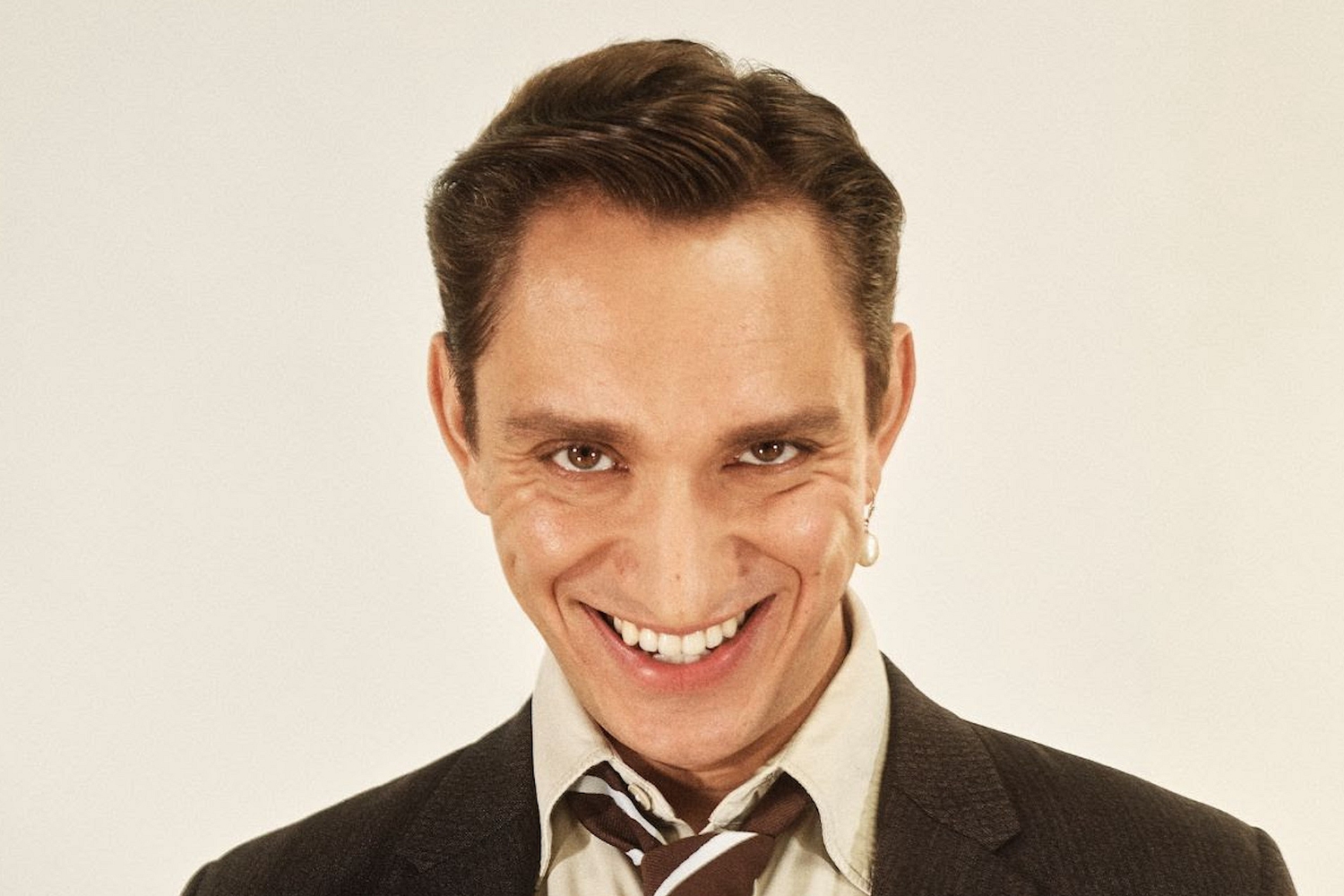
Oliver Sim covers Romy and Fred again..’s ‘Strong’ with MUNA’s Katie Gavin, Låpsley, Marika Hackman, Casey MQ and Romy
Feast your eyes and ears on the best new songs released this week.
1st December 2022, 12:00am
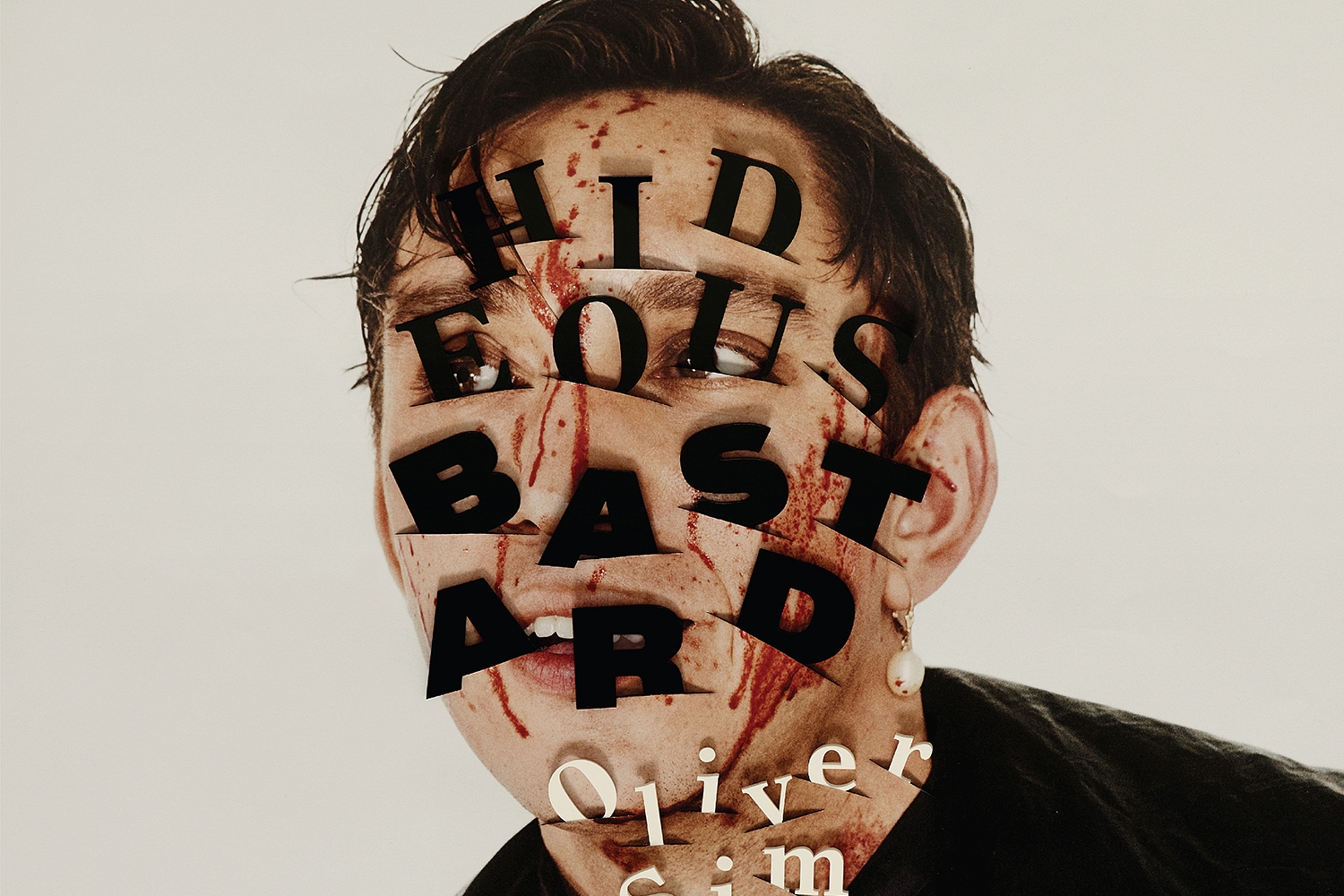
Oliver Sim - Hideous Bastard
5 Stars
Oliver takes on both past and present realities with a candour that surprises even him.
9th September 2022, 12:00am
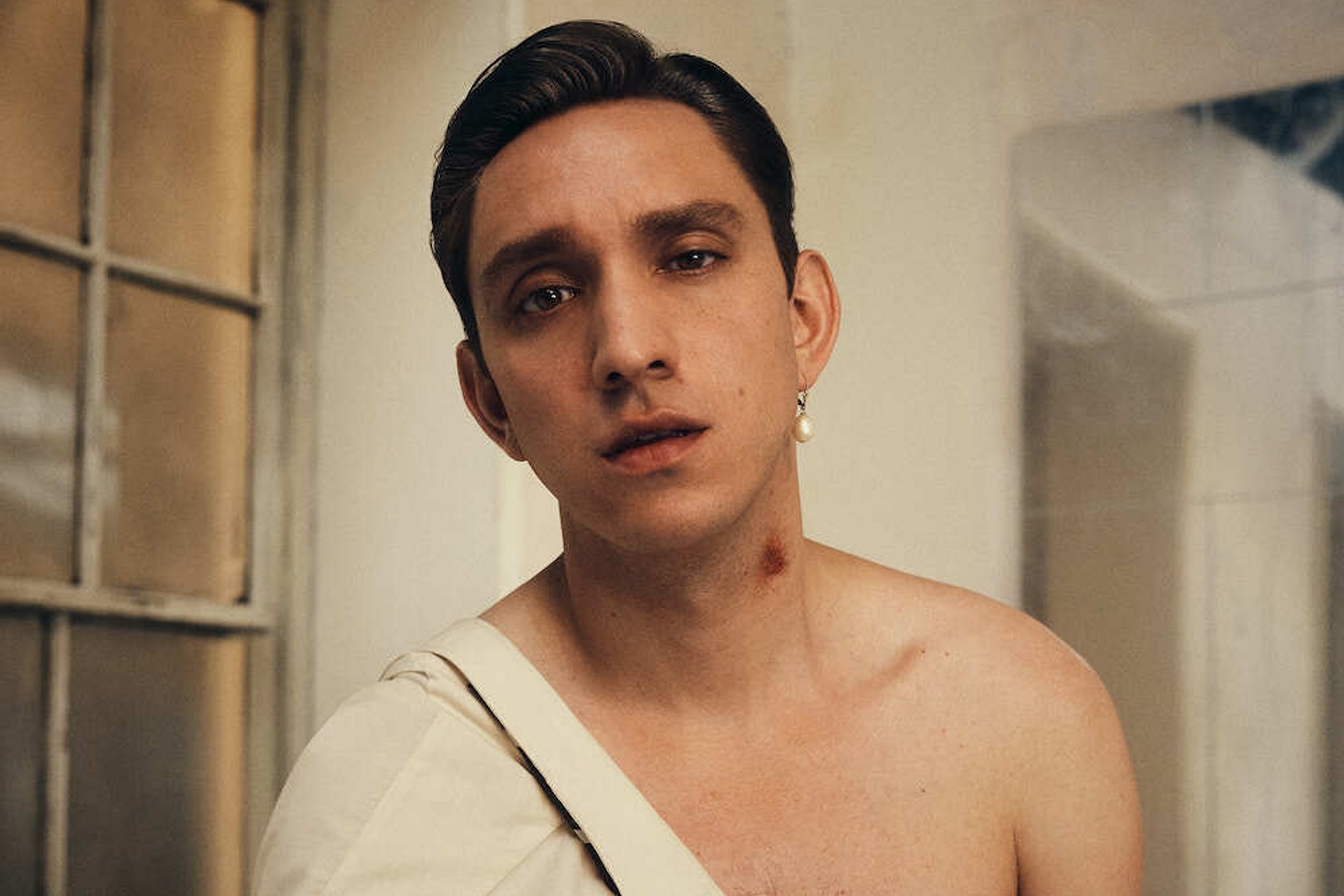
Oliver Sim unveils new single ‘Fruit’
7th April 2022, 12:00am
With Bob Vylan, St Vincent, girl in red, Lizzy McAlpine and more.
